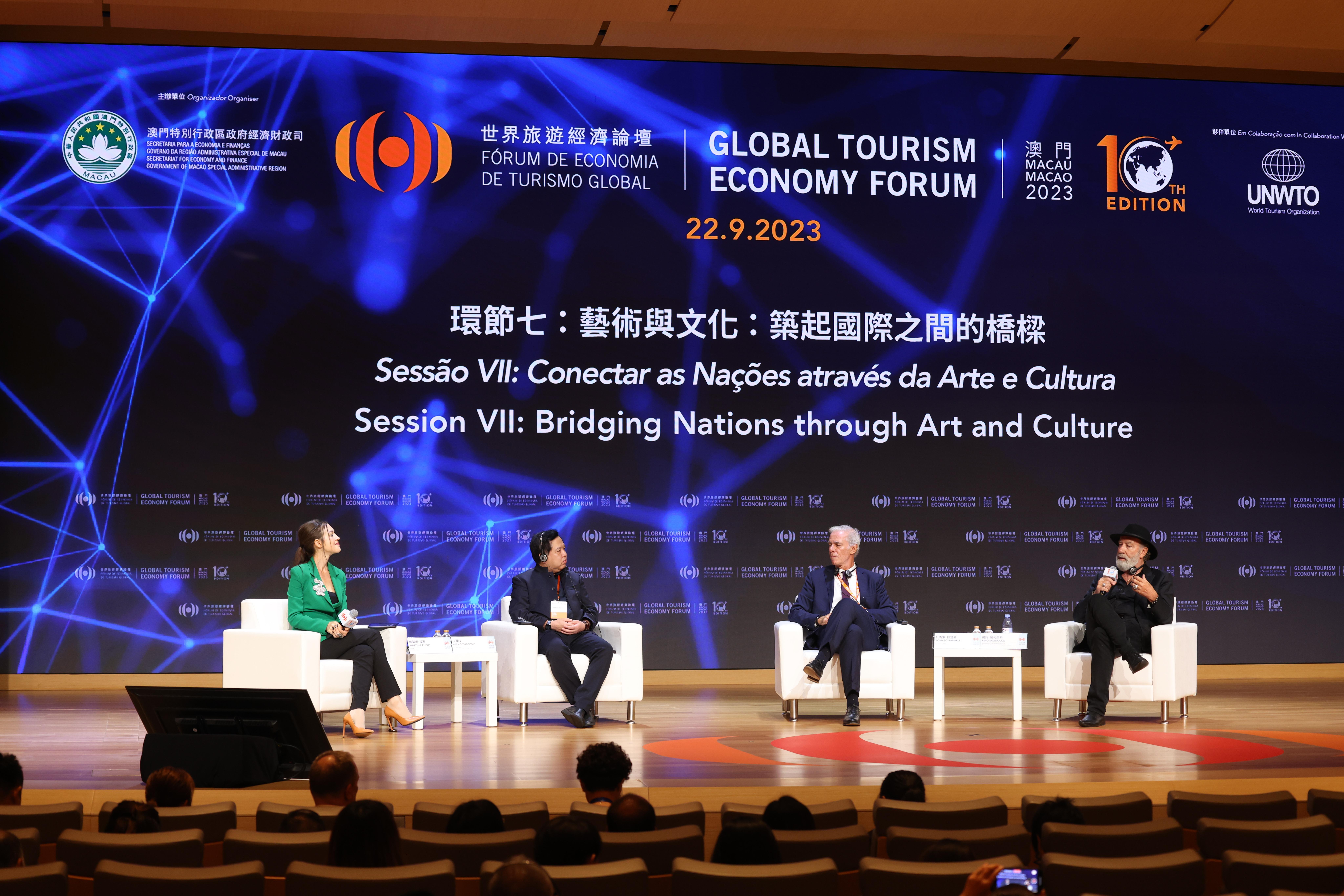 (L-R) Moderator and business journalist Martina Fuchs, Deputy Director of the Palace Museum Wang Yuegong, Chairman of MondoMostre Tomaso RADAELLI, and Chairman of Live Nations Spain and UNWTO Special Ambassador Pino Sagliocco at a session on “Bridging Nations Through Art and Culture” during the Global Tourism Economic Forum at the Galaxy International Convention Center, Sep 22, 2023 (EDMOND TANG / CHINA DAILY)
(L-R) Moderator and business journalist Martina Fuchs, Deputy Director of the Palace Museum Wang Yuegong, Chairman of MondoMostre Tomaso RADAELLI, and Chairman of Live Nations Spain and UNWTO Special Ambassador Pino Sagliocco at a session on “Bridging Nations Through Art and Culture” during the Global Tourism Economic Forum at the Galaxy International Convention Center, Sep 22, 2023 (EDMOND TANG / CHINA DAILY)
Tourism can enjoy a better future if the sector integrates more deeply with culture and the arts, and blends virtual and physical travel experiences through digitalization, cultural experts and business leaders said at the Global Tourism Economy Forum on Friday.
“Culture and art are a universal language for humanity and play a significant role in international dialogue and exchange of civilizations,” said Wang Bo, chairman of Poly Culture Group Corp, a Chinese arts company.
READ MORE: Speakers bank on a tourism boom in GBA
“Through innovative initiatives in cultural tourism, film, music, sports, and other specialized sectors, countries benefit from (their) rich cultural heritage, which contributes to their economic development,” he added.
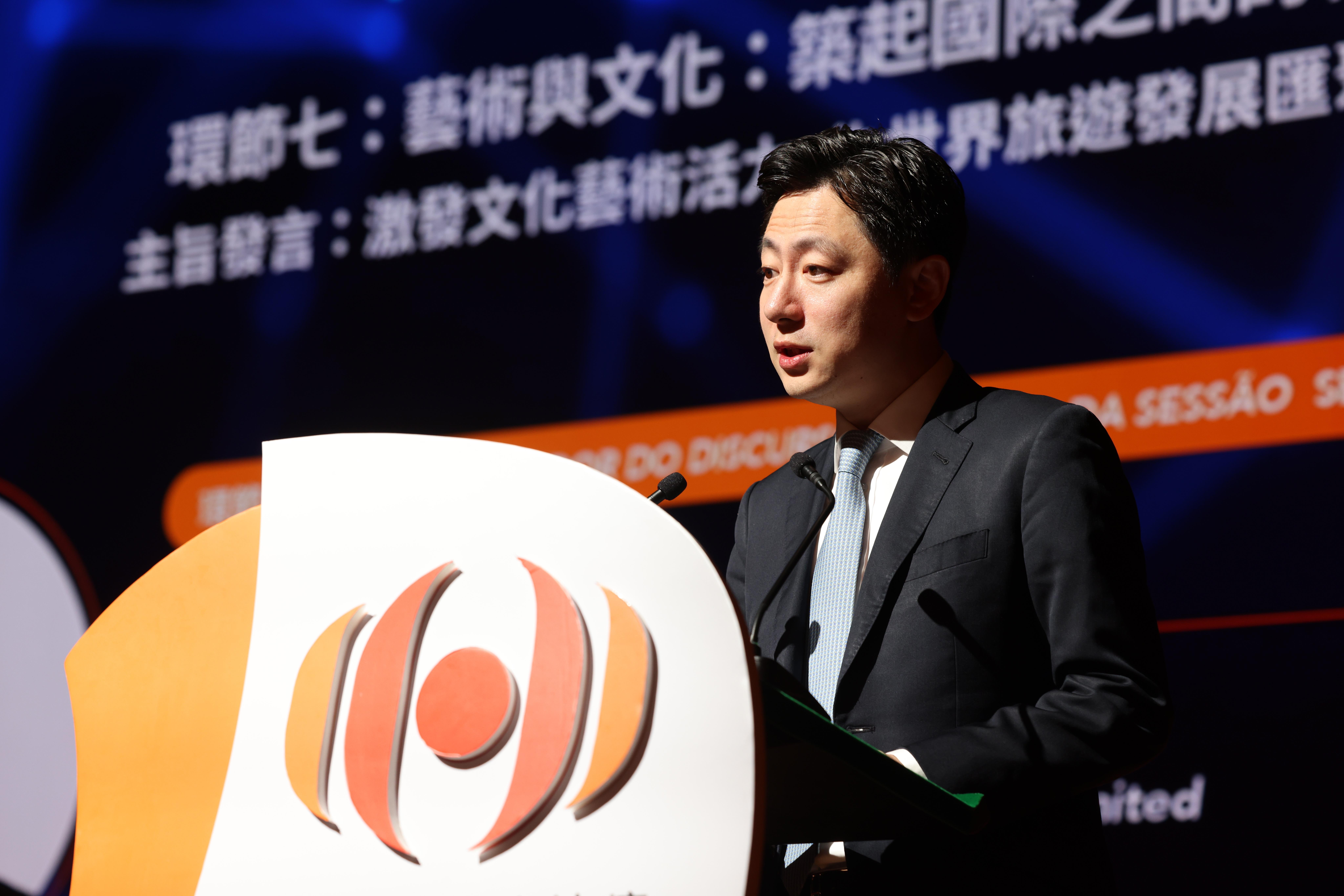 Wang Bo, chairman, Poly Culture Group Corporation Limited (EDMOND TANG / CHINA DAILY)
Wang Bo, chairman, Poly Culture Group Corporation Limited (EDMOND TANG / CHINA DAILY)
The development of the cultural industry is closely tied to market-driven forces. According to the United Nations Educational, Scientific and Cultural Organization (UNESCO), the sector can generate an annual revenue of $2.25 trillion and provide nearly 30 million jobs.
“We believe that the cultural industry plays a crucial role in promoting mutual exchange and development of civilizations,” Wang said, adding that more efforts should be made to integrate tourism with culture and the arts, which can serve as an intrinsic driving force for tourism.
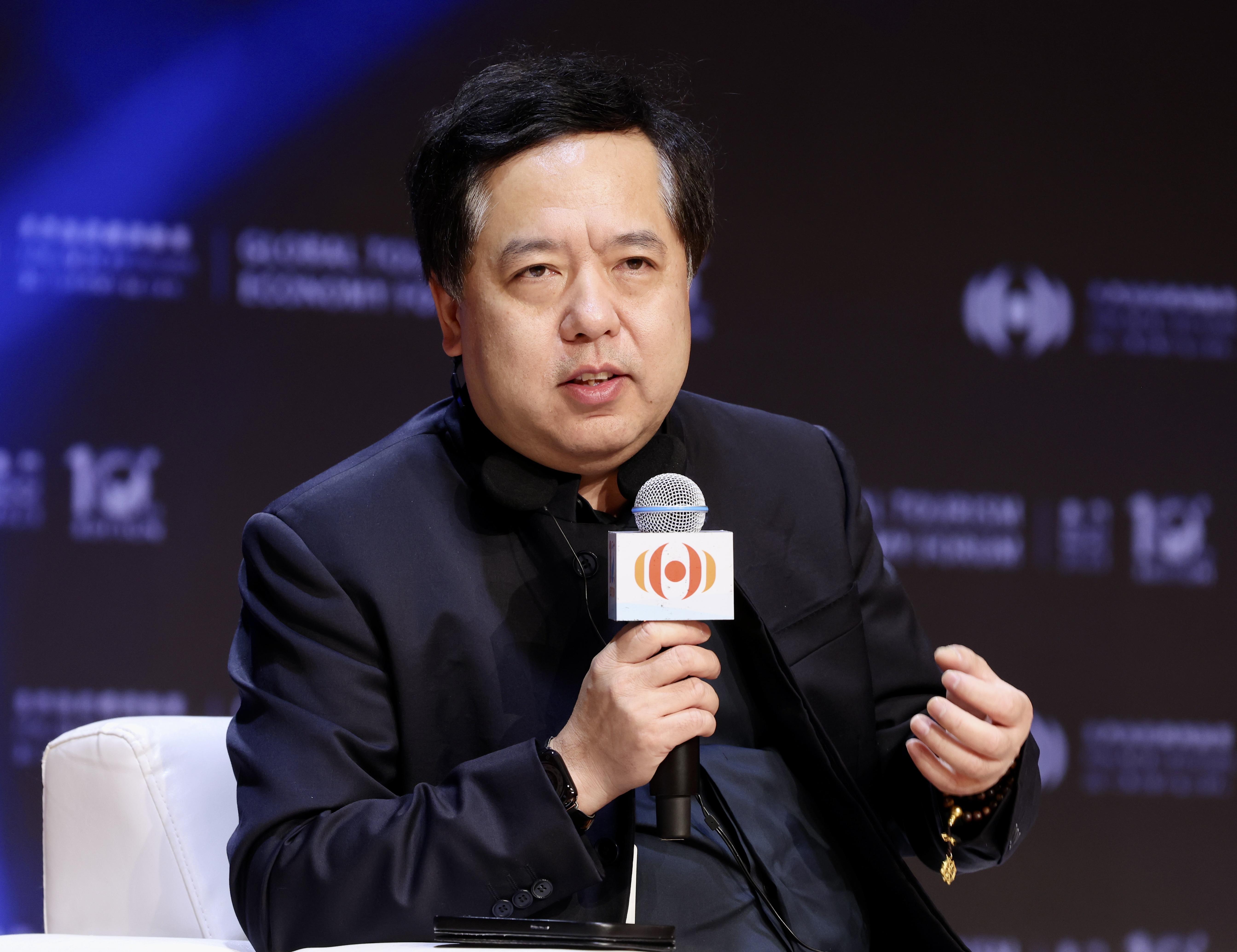 Wang Yuegong, deputy director, The Palace Museum (EDMOND TANG / CHINA DAILY)
Wang Yuegong, deputy director, The Palace Museum (EDMOND TANG / CHINA DAILY)
Wang Yuegong, deputy director of the Palace Museum, said technological applications not only make the preservation of relics more efficient but also help boost the cultural tourism sector.
The Palace Museum, also known as the Forbidden City, was China's imperial palace from 1420 to 1911. It houses over 1.86 million cultural relics. As one of the country’s first museums to adopt innovative technologies, the Palace Museum has rolled out digital presentations of its collections and services, including online tours.
Wang said online cultural tourism enables people to visit attractions from their own home, but it doesn’t lead to a drop in the number of tourists who visit in person.
ALSO READ: Experts paint rosy picture of tourism’s future at Macao forum
“In fact, after seeing the Palace Museum online, it actually motivates people to come and visit it. This can be seen as a catalyzer for tourism,” he added.
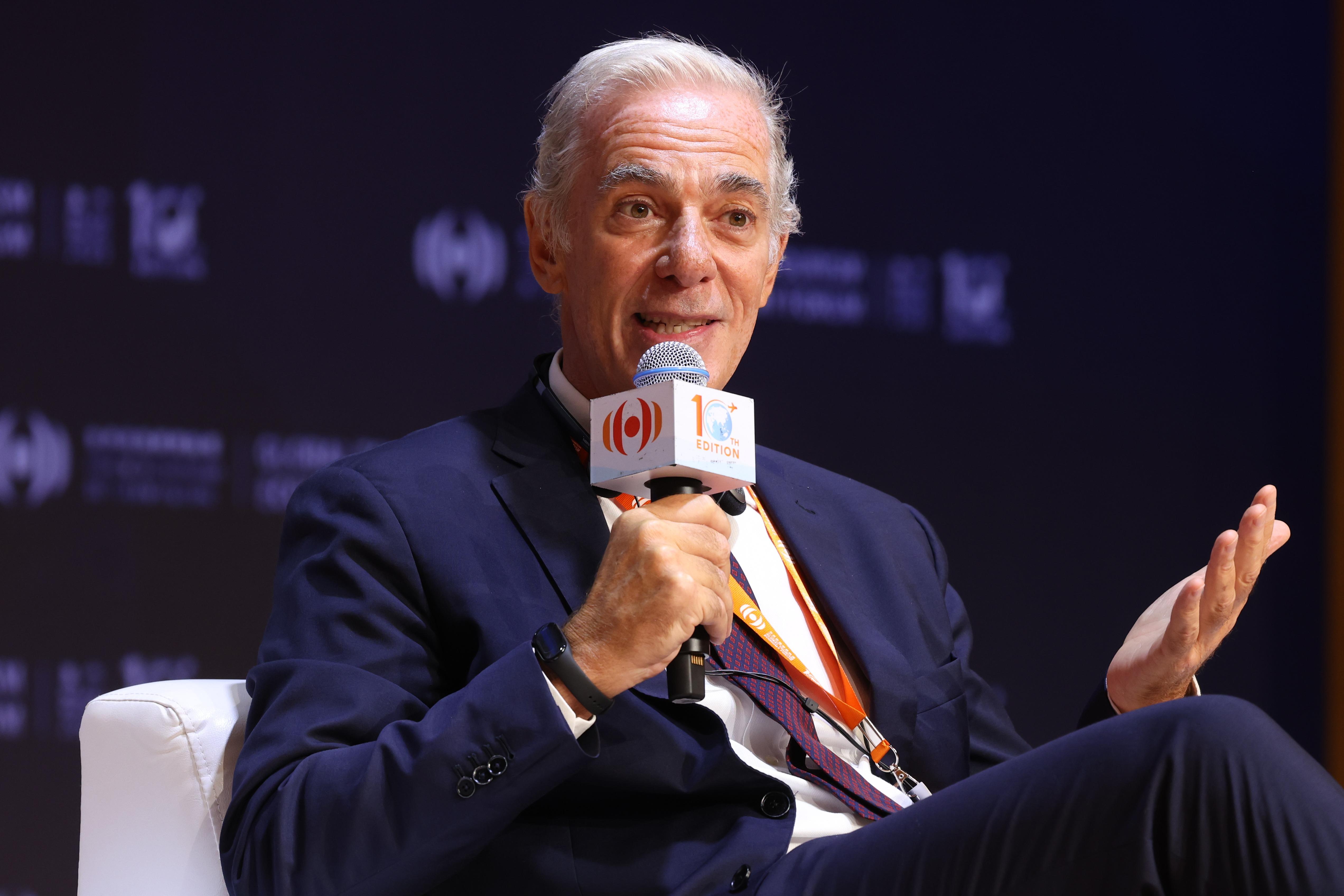 Tomaso Radaelli, chairman, MondoMostre (Italy) (EDMOND TANG / CHINA DAILY)
Tomaso Radaelli, chairman, MondoMostre (Italy) (EDMOND TANG / CHINA DAILY)
Tomaso Radaelli, chairman of Italy-based exhibitor MondoMostre, said promoting the cultural industries still requires collaborative efforts to overcome difficulties in cultural sensitivities and art preservation.
“It's difficult, because sometimes there’s an issue (concerning) cultural sensitivities which you have to respect. Not every culture has the same set of values or understanding of those values,” Radaelli said.
READ MORE: Innovation to bring fresh experience to tourists, forum told
He added that art is “delicate” and “fragile”, that it needs to be insured, and that moving and preserving it requires a lot of money.
“If anything happens to a piece of work, nothing is going to replace it,” he said.
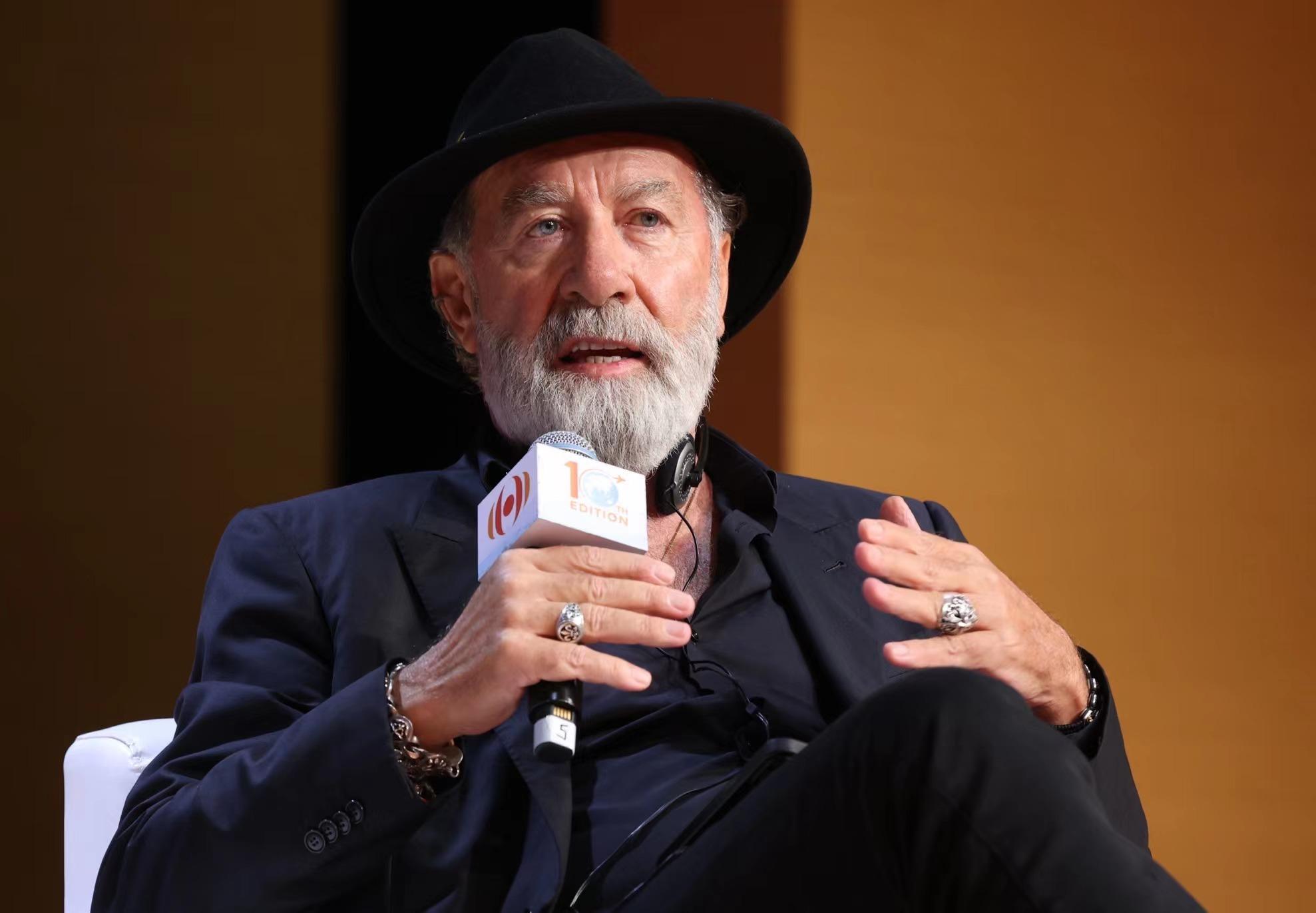 Pino Sagliocco, chairman, Live Nations Spain (EDMOND TANG / CHINA DAILY)
Pino Sagliocco, chairman, Live Nations Spain (EDMOND TANG / CHINA DAILY)
Pino Sagliocco, chairman of live entertainment company Live Nations Spain, said music is a harmonized force between people, and it is essential for the tourism sector to tap into music as a means to bring people from different nations together.
Describing music as a driving force for young people, Sagliocco said millions of people today travel to different cities and come together for a variety of musical events and shows worldwide, and this helps increase sales at local restaurants, hotels and museums.
Contact the writer at evanliu@chinadailyhk.com


